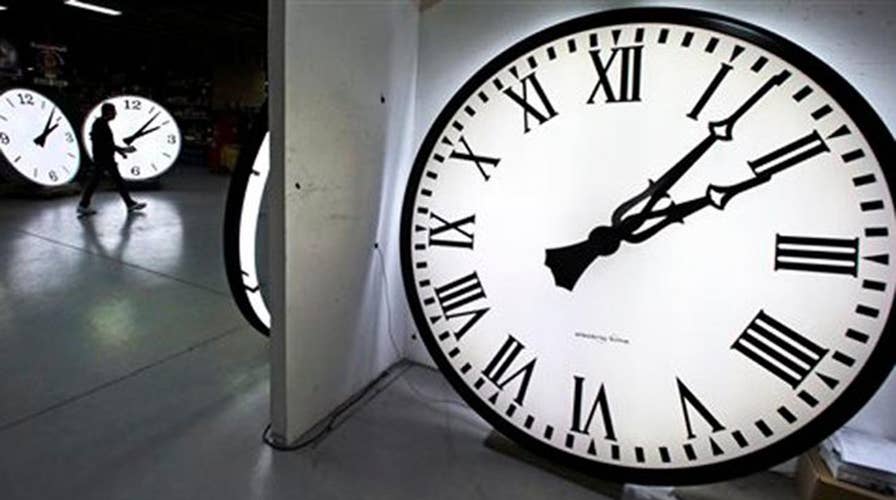Sen. Marco Rubio files bill to make daylight saving time permanent nationwide
Under the Sunshine Protection Act of 2019, Americans would set their clocks ahead one hour and keep them there, creating an extra hour of sunlight even in winter.
President Trump apparently is tired of switching clocks just like everyone else.
Coming off a universally sleep-deprived weekend during which America set the clocks to spring forward an hour, Trump tweeted that he's “O.K.” with making Daylight Saving Time “permanent” -- in other words, enough with the clock changing.
“Making Daylight Saving Time permanent is O.K. with me!” Trump tweeted Monday.
The president’s tweet came at the start of 2019’s Daylight Saving Time, which begins each year on the second Sunday in March, starting at 2 a.m. Changing the clocks forward means everyone loses an hour of sleep but gains an hour of evening daylight through the fall, when the clocks are turned back.
The law was first established during World War I as “a way of conserving fuel needed for war industries and of extending the working day,” according to the Library of Congress. But it was only temporary – the law was repealed as soon as the war was over.
DAYLIGHT SAVING TIME: WHEN AND WHY WE 'FALL BACK'
But the issue of daylight saving emerged again during World War II. On Jan. 20, 1942, Congress re-established daylight saving time.
More than 20 years later, in 1966, former President Lyndon B. Johnson signed into law the Uniform Time Act, declaring daylight saving time a policy of the U.S. and establishing uniform start and end times within standard time zones. The policy is regulated by the Department of Transportation.
But not all states participate. Hawaii, most of Arizona and several U.S. territories—including American Samoa, Guam, Puerto Rico and the Virgin Islands—do not observe daylight saving time.
OPINION: DAYLIGHT SAVING TIME IS MAKING US ALL TIME TRAVELERS AGAIN
The president would need to work with Congress in order to repeal the 1966 Johnson-era law. Republican Florida Sens. Marco Rubio and Rick Scott filed a bill last week to extend daylight saving time for the entire year, called the Sunshine Protection Act. The Florida legislature voted last year to adopt the measure, but in order for it to take effect, Congress must change the federal law, and Trump must sign it.
His Monday morning tweet seemed to signal that should such a proposal make it to his desk, he would do so.
The topic has caused a nationwide debate since its inception, with many arguing the policy is unnecessary and disturbs sleep patterns. Supporters say it saves energy because people tend to spend more time outside when it's lighter out. The DOT claims it also "saves lives and prevents traffic injuries," because visibility is better.
The Associated Press contributed to this report.





